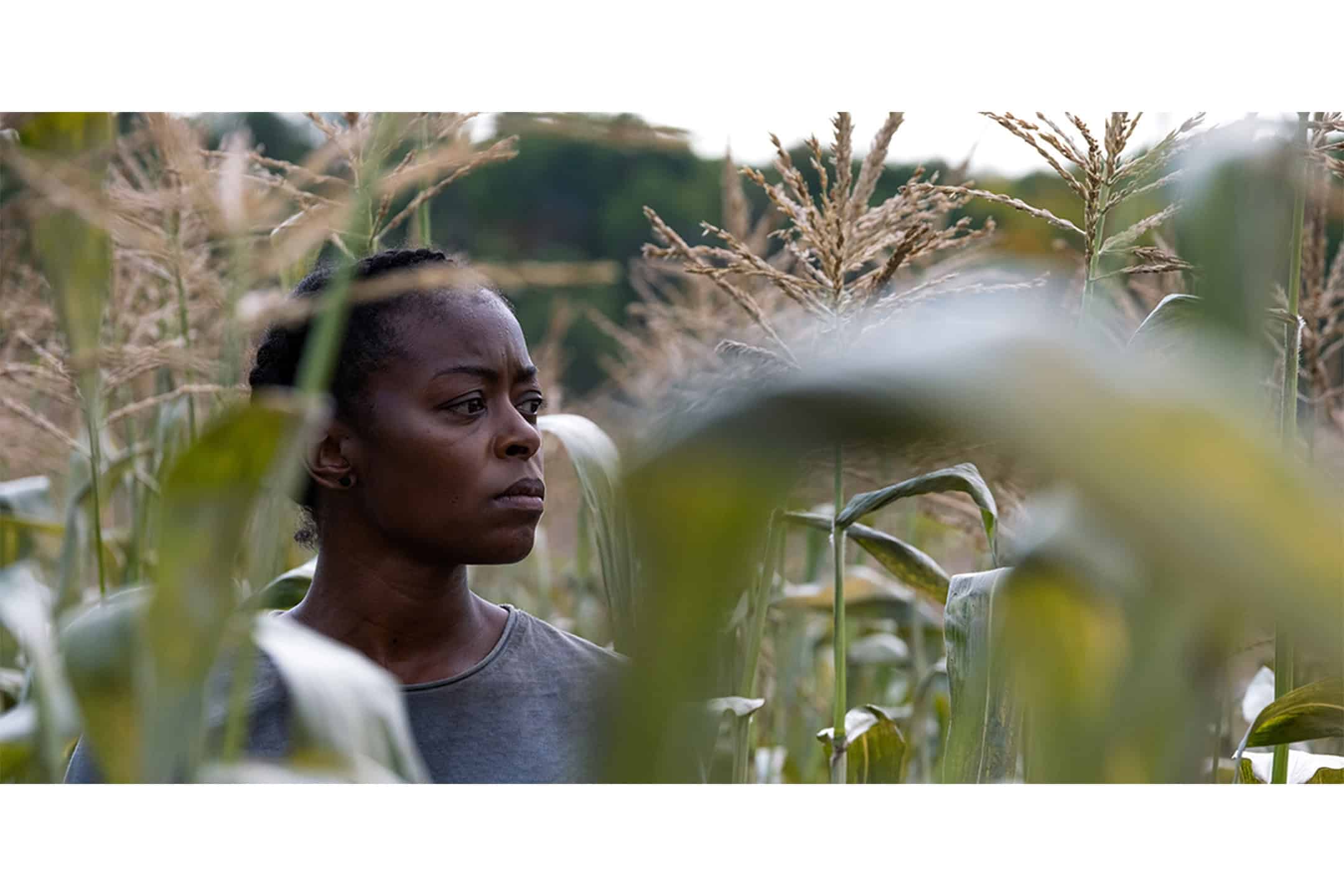In 40 Acres, director and screenwriter R. T. Thorne embraces a world sparse in life beyond farmlands, cannibals, and the film’s central family. While occasional awkward dialogue and licensed music can break the immersion in the compelling narrative, the relatable relationships between parents and their teenage children effectively build tension and sustain the story throughout its two-hour runtime.
The film grabs you immediately with an opening action sequence that introduces the protagonist’s family as unapologetically violent and skilled in defending their farm in a post-apocalyptic, post-civil war Canada. Danielle Deadwyler’s Hailey, the matriarch of the Freeman family, runs a tight ship and is wary of outsiders. It is engaging to see how the family operates daily, creating culture and celebration despite their isolation. However, their status is precarious, especially as their teenage son Emmanuel (Kataem O’Connor), or Manny, begins to yearn for life beyond the farm’s electric fence.
The expansive farm and forest in this post-apocalyptic Canada are striking, and vibrant with colours and shadows. The cinematography and lighting adeptly shift between depicting the world as quantifiable and controlled, and as sublime and unknown. A bright sky above the farm instills a sense of safety, while a clear stream under lush trees in the nearby forest justifies Manny’s desire to explore.
The towering trees loom over the survivors, their black bark serving as a canvas on which they imagine the mysteries lurking behind them. At night, darkness engulfs the land, creeping up against the dim lights inside the house where the family sits around the dinner table. However, a bonfire in their driveway, set to celebrate a daughter’s coming of age, pierces the dark and inspires hope for the family’s survival. This interplay between the familiar and the unknown builds growing tension throughout the plot.
The film’s strongest aspects are its characters. Deadwyler and Michael Greyeyes — as her husband Galen — excel in portraying the stoicism required for their roles. Both actors have moments to shine, with Greyeyes particularly soaring in what is undeniably the most inventive bloodbath in the film.
Yet, it’s in the quieter moments between the action where the two stars showcase their acting skills. The family finds humour in their daily tasks of defending their farm and dealing with the aftermath, much to Hailey’s frequent dismay. The tension between Manny and his mother over the best way to navigate this harsh world, and who they can trust, mirrors the growing mystery of disappearing farms reported on the Freemans’ radio. This dual tension makes for a gripping first two acts.
Unfortunately, a few elements detracted from my immersion into the film. The licensed tracks sometimes felt distracting and out of place, as though they were imitating a potentially better-suited, more commercial piece. Additionally, some occasional clunky dialogue, particularly in the second act, disrupted the experience.
However, the characters remained strong, and the score effectively captured the emotional tone of each scene. The thrilling finale, while predictable, delivers a satisfyingly graphic conclusion. What the third act may lack in surprise, it compensates with memorable character scenes that had my theatre applauding unashamedly.
It is safe to say that Thorne rises to the challenge of his feature debut, delivering a film that portrays a timeless familial struggle in a terrifyingly uncertain world. The characters shine in moments both big and small, but most importantly, they do not hesitate to fight back and defend what matters to them.



No comments to display.